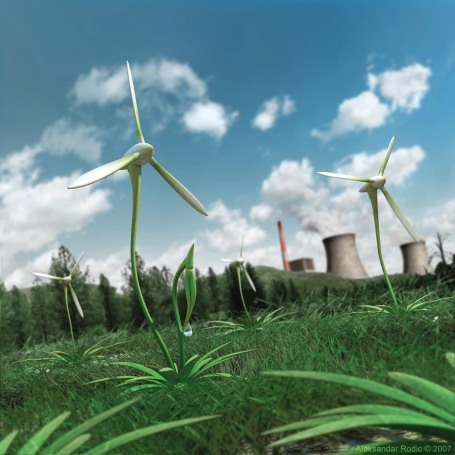Posts filed under ‘just transition’
Bus tour takes on coal industry
 A bus-load of climate change activists made a seven-day journey from Newcastle through coal communities in the Hunter Valley, Gunnedah and Western coalfields over November 20 — 26.
A bus-load of climate change activists made a seven-day journey from Newcastle through coal communities in the Hunter Valley, Gunnedah and Western coalfields over November 20 — 26.
Their message: to fight climate change, a “just transition” is needed — a move away from burning coal for energy, but done in a way that protects the people who work in the industry.
The Just Transition Tour met coalminers and their families in mining towns, strengthened ties with local environmental groups and visited farming communities fighting to stop big coal companies from degrading prime agricultural land.
On the final day of the tour, the activists gathered outside NSW parliament house in Sydney, calling on the government to support a just transition away from coal.
Speaking at the protest, tour participant Warrick Jordan told Green Left Weekly two things stood out for him most.
“One was travelling to Mount Arthur outside Muswellbrook and seeing the extent of coalmining and the extent of what was planned for the future, which was quite shocking”, he said.
“The other thing was visiting a small community at Jerrys Plains who are threatened by a large coalmine. Many have had to move from other areas that have been swallowed by coalmining. I was struck, at times, by the desperation, but mostly the strength, of these people and largely by the lack of support they are getting.
“The response we got was extraordinary and the generosity was very strong. It made me realise that there should be other groups that are helping these communities much more.”
Tour co-organiser and Socialist Alliance activist Simon Cunich said the purpose of the tour was to begin to form an alliance between the climate movement and the people who live in coal-dependent communities.
“We wanted to go out to communities where a lot of people are employed in the coal industry and say that there are alternatives”, he told GLW. “The science of climate change demands that we do transition away from coal, but it must be done in a way that doesn’t leave people without employment and doesn’t leave communities without livelihoods.”
Cunich said the tour also stressed that the participation of affected communities in planning the transition was essential. “We wanted to emphasise that coal communities and workers in [fossil-fuel based] industries need to be involved in the process of transitioning away from coal and need to be part of the decision-making about these changes.”
The Just Transition Tour “guide” was Graham Brown, retired coalminer and Hunter Valley climate activist. He said the most memorable aspect “was the people that we met in affected communities”.
“To a man and a woman they all said coal was destroying their lives and our country’s future”, he said. “What we’re seeing now from all those people is a joining together of forces that we haven’t seen before.”
Tour participant Lindal Richards told GLW the mining industry exacts a heavy toll on local residents.
“We met one man who owns a dairy farm with his wife”, she said. “The mines have encroached onto their lands up around Jerry Plains so much so the groundwater is being taken, their land is being degraded, there is coal dust in the air and they just can’t make enough money from their farm any more.
“The only thing he could do to hold his family up was to then go and get a job in the mine. He was watching his community being eaten up and absorbed into this industry in a way he thought was wrong, but then he had to go work for this industry.”
tour participant Bronwyn McDonald told GLW: “An overarching memory that will stay with me is the women in these communities. In Singleton, they talked about being so tired from fighting a faceless bureaucracy about the toxins in the air from [coalmining] and their children’s health.”
Tour member Rob Martin said the seriousness of climate change meant “the government should be looking to change their attitude. They can’t just say we need the money from coal and that our economy depends on it, because if we don’t look for another option, we’ll be in a very big mess. With climate change it’s something we shouldn’t be using and should be phasing out.”
Newcastle university student Cass Byrne told GLW she was impressed by the farmers blockading at Caroona, who were “really inspiring and passionate about protecting their land” from coalmining.
She said the tour had demonstrated there were “definitely ways that we can move forward to greener jobs and people can still keep their employment”.
Tour member Alain Ashman told GLW the tour had reinforced that solutions to the threat of climate change were within reach. “Just by doing this tour, you can see the options are there and it’s just a lack of political will. I think that the willpower has to come from the people. People should tell the politicians what they want rather than the coal industry.”
Cunich said building alliances with workers and farmers in affected communities was a non-negotiable requirement for the climate movement.
“There is not going to be a transition away from coal unless it’s pursued by a movement composed of the kind of groups we’ve met on the tour, as well as people in the coal industry who are looking towards the future.
“The transition won’t happen either if it’s left to the private sector.”
Retired coal miner says ‘phase out coal now’
Retired coal miner Graham Brown is currently touring Australia to call for the phase out of coal and for real green jobs. He is being toured by Resistance. Check the site for meetings in other cities.
Below is part of the talk he presented at the University of Sydney on August 12.
Brown was recently interviewed by Green Left Weekly‘s Zane Alcorn. You can read the two part interview here and here.
Renewables are do-able

The fossil fuel lobby falsely claims the transition to renewables will cost jobs
Zane Alcorn’s latest article in Green Left Weekly (posted below) outlines how the transition to renewable energy can actually create more jobs than dirty, fossil fuel based industries.
Its based on a report commissioned by Greenpeace Australia and prepared by the Centre of Full Employment and Equity (CofFEE) in Newcastle. The full report, titled A Just Transition to a Renewable Energy Economy, is highly recommended.
Zane has recently published two new articles exploring the potential of solar thermal power and wind power. For an excellent analysis of the potential for geothermal power in Australia visit here.
Greenpeace report: Renewables are doable
Zane Alcorn
On June 13, rallies around Australia will launch a new grassroots climate campaign for 100% renewable energy by 2020.
No doubt some tabloid journalists and business representatives will denounce such an ambitious target as ludicrous and impossible, a disaster for the economy and a recipe for mass job losses at a time when we can least afford it. What we can least afford, in fact, is to delay a crash conversion to renewables any longer.
Here arises a crucial task of the climate movement. We must be able to provide a vision for how emissions can be reduced at a fast enough speed to stop the horrid crisis we are warning people about.
It is one thing to build a mass movement for “climate action”. It is another thing to produce actual plans for how to make the transition away from coal-fired electricity to renewables (along with emissions reductions in other areas).
A Just Transition to a Renewable Energy Economy in the Hunter Region was commissioned by Greenpeace and prepared by the Centre of Full Employment and Equity (CofFEE) in Newcastle. It was released in June 2008. The report dispels the myth that a transition to green jobs will mean job cuts.
In fact, the opposite is true.
The 78-page document makes a detailed analysis of employment patterns in the Hunter Region of New South Wales and energy production and consumption patterns across the state. It looks at the potential for energy efficiency measures and renewable energy generators to replace coal.
It profiles two scenarios: one in which the Hunter replaces its coal-fired generators with enough renewables to provide its own energy needs, and a second in which the Hunter produces a surplus of green energy sufficient to supply 40% of electricity demand in NSW.
The report also addresses the $12 billion question: how much will these grand schemes cost? It is required reading for every climate activist, not just in Australia but around the world.
The Hunter Region has the world’s largest coal port and is home to six coal-fired power stations. Eighty percent of NSW’s electricity is generated in the region. The power stations are fed by 18 coal mines.

Anti-coal protesters occupied Newcastle harbour in March, 2009
The report states: “there are major benefits to the Hunter and adjacent Wyong region if there is a shift from coal-fired power generation to a clean, renewable energy economy. These benefits include the creation of thousands of new secure, well-paid jobs in the research, design, manufacture, installation, maintenance and export of energy efficiency and renewable energy technologies.
“The report finds that a shift to a renewable energy economy in the Hunter / Wyong region would create between 7500 and 14,300 new jobs — a net gain in jobs of between
3900 and 10,650 jobs.”
It continues: “The lower estimate is extremely conservative, as it assumes no Australian manufacturing in wind or solar energy. If manufacturing is established in the Hunter to service the NSW renewable industries, the lower estimate is 9400 jobs, a net gain of 7100 jobs.”
The report projects that if NSW were to shift to 100% renewable energy (including some local manufacturing of the generators), between 63,200 and 73,800 jobs would be generated.
The CofFEE report is exceptionally well researched and uses data from the European Wind Energy Association, efficiency specialists Energetix, and various reports that analyse the jobs breakdown in renewable industries and the effects of job losses in coal-fired power.
This is a cutting-edge document. Greenpeace would be doing the international climate movement an immense favour if they commissioned a network of locally produced green transition reports like the CofFEE report in other coal-fired energy hotspots around the world.
In the absence of democratic government institutions doing the necessary task of planning the transition to green energy — on a national and an international basis — the responsibility falls to groups like Greenpeace and CofFEE.
Part of that plan is a technical outline of the best types of renewable energy for the job, the ideal locations, how the energy is produced and how much it costs. Then there is the crucial question of a just transition for workers in fossil fuel industries (especially coal). It is of immense importance to provide a climate plan that these workers can believe in.
They, a few thousand in number, have the power to shut the industry down. The “greenhouse mafia” pays special attention to keeping those workers onside and making a transition to renewables seem like a well-intentioned delusion, a risky gamble that will cost jobs.
The CofFEE report demolishes this claim.
The report states: “Labour unions and environmentalists are critical participants in a just transition process … Australian Building Unions’ Green Bans of the 1970s pioneered transformational union-environmental activism and social movement unionism.”
Anyone who reads this report can’t help but be confident that a shift from coal to renewables is very achievable and can be done in such a way that will protect the livelihoods of workers in coal-fired power stations.
From: Comment & Analysis, Green Left Weekly issue #792 29 April 2009.